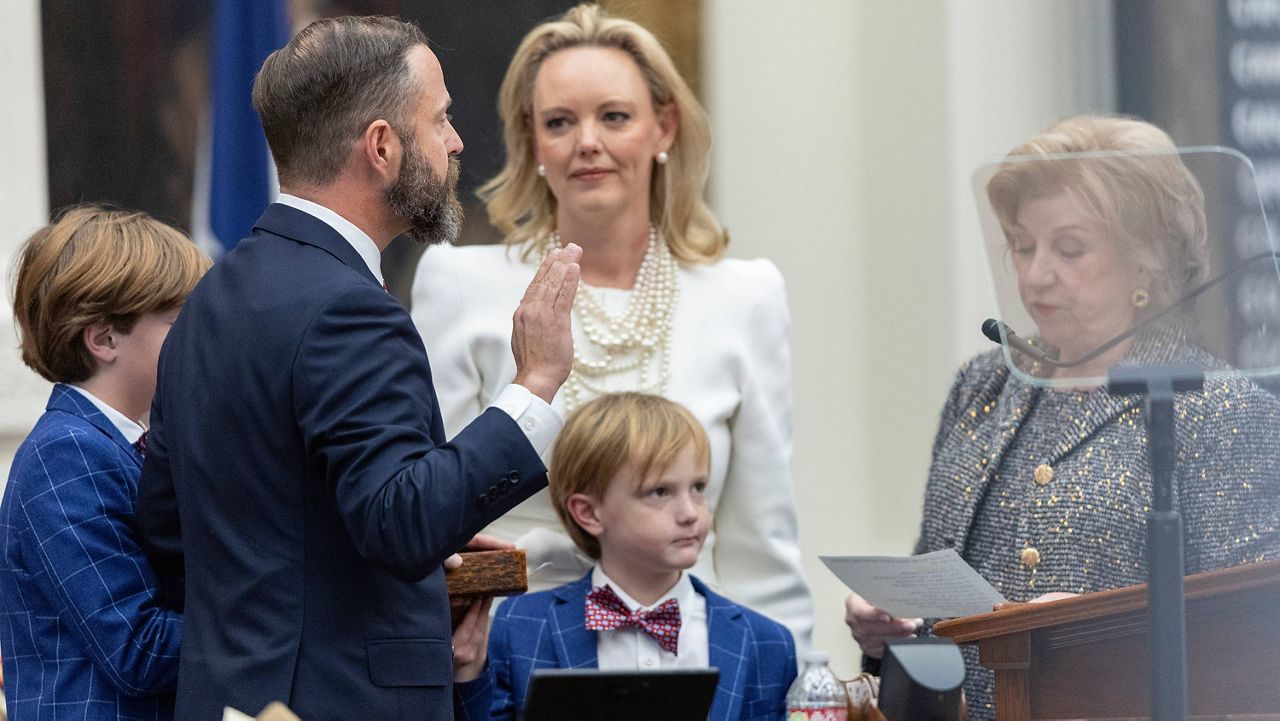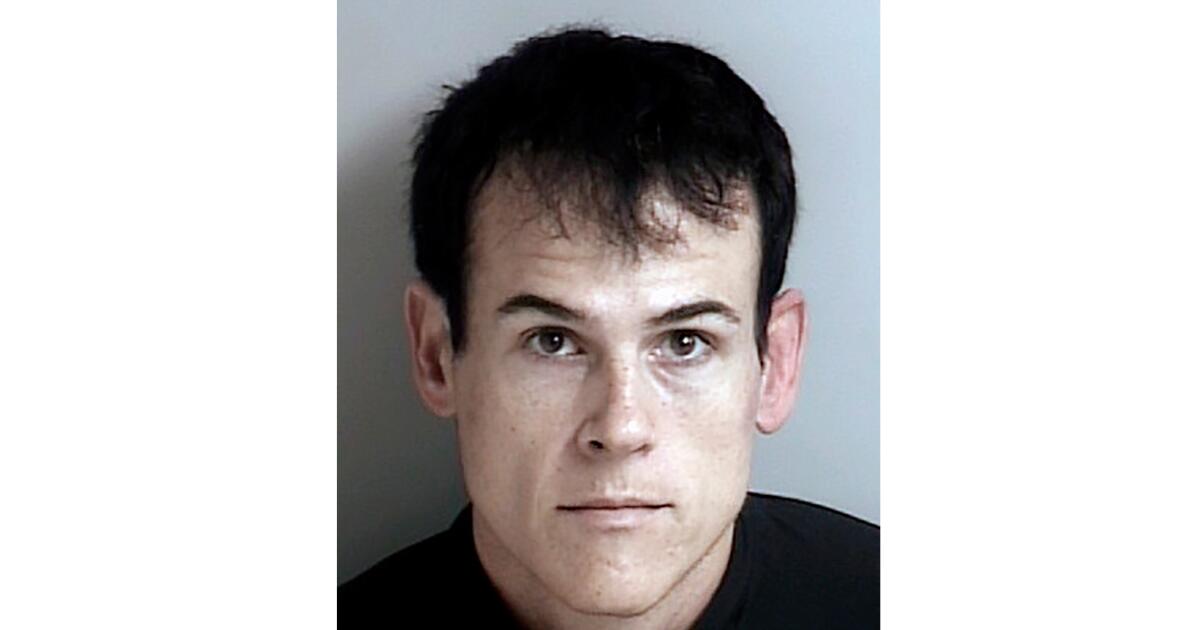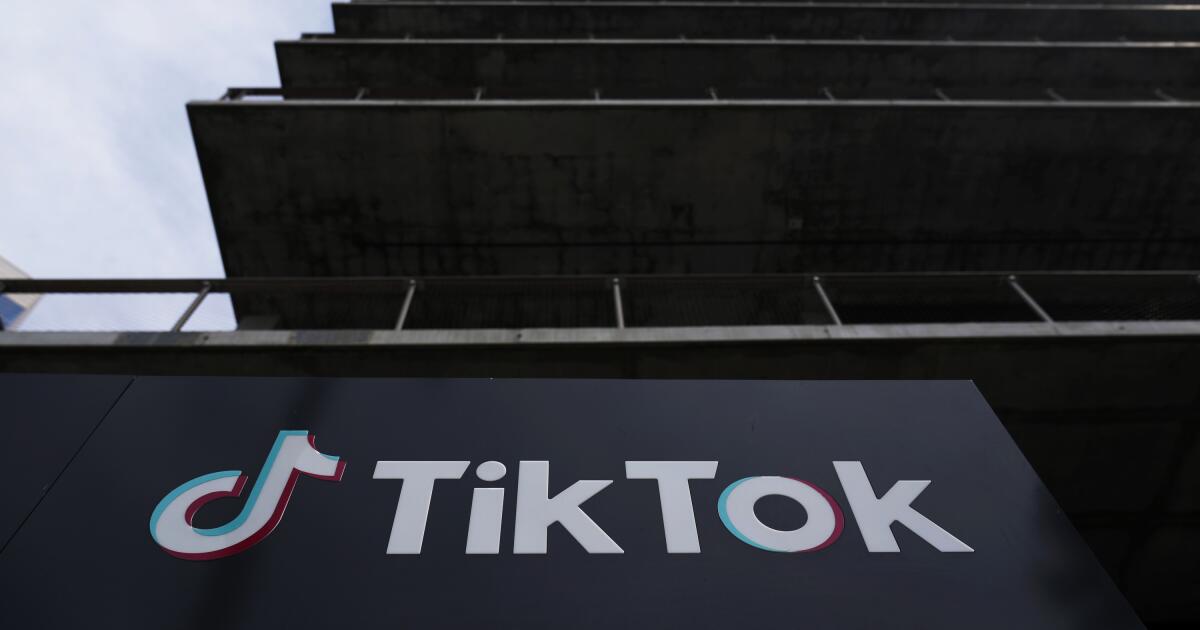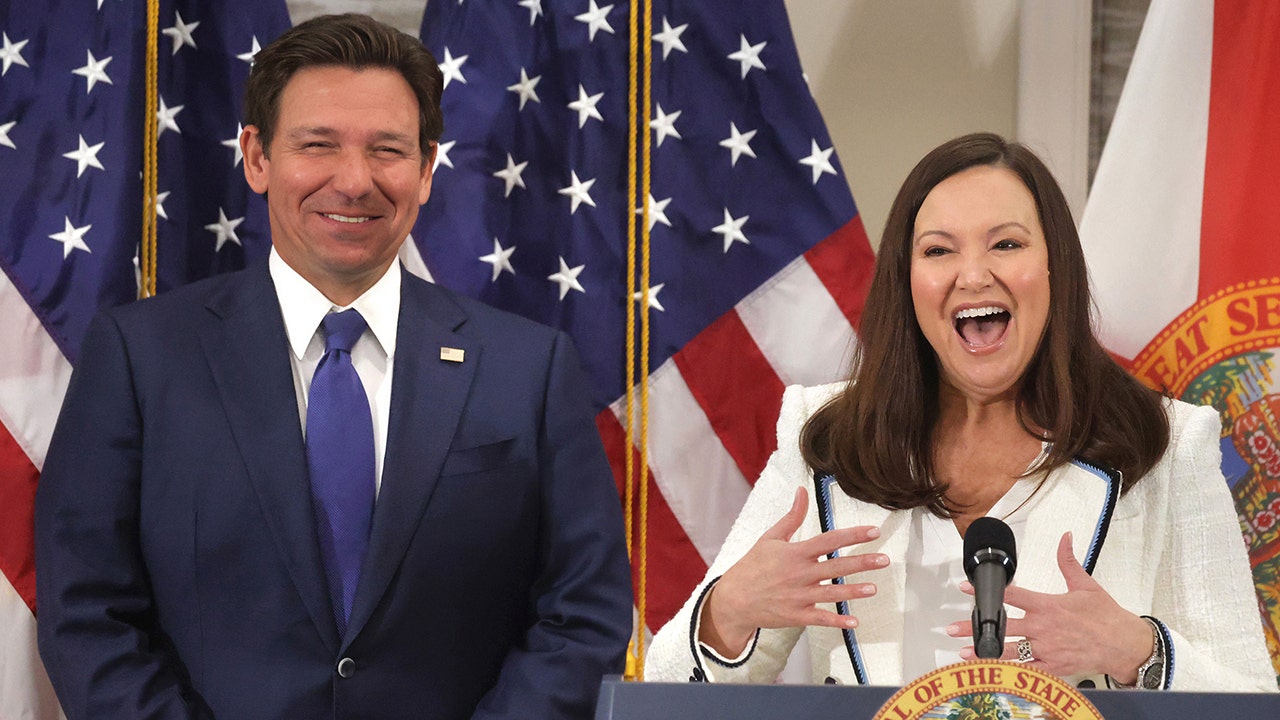North Dakota
Port: North Dakota Democrats in tough financial shape as election year looms

MINOT — There is chaos in the North Dakota Republican Party. Power struggles and in-fighting between traditional conservatives and an upstart faction of Donald Trump-aligned populists are tearing the party apart.
Party chair Sandi Sanford,
elected in no small part due to that chaos,
is proving to be a less-than-effective leader. The party’s
fundraising has suffered,
key staff has abandoned ship
and the party’s new executive director
is a misogynistic cartoon character.
This would seem to present an opportunity for the North Dakota Democratic-NPL. At nearly rock bottom in terms of holding elected offices in our state, they really have nowhere to go but up, and the chaos in the NDGOP could be a ladder for them. But if the party is building momentum heading into what could be a tumultuous election year, it’s not showing up as dollars and cents.
Over the last two years, the party’s finances have plummeted, with its cash on hand, as reported in monthly reports to the Federal Election Commission, bottoming out this summer at a level that’s roughly half of the party’s monthly spend on staff and other expenses.
The Dem-NPL got an infusion of cash — a bailout, you could say — from the Democratic National Committee in September, but that only casts the party’s paltry fundraising in a sharper light. Of the just over $38,000 the state party
raised in the September reporting period,
$25,000 came from the DNC. The party raised just a bit more than $13,000 on its own, less than half the $30,267.44 in expenditures it reported for the month.
It’s not unusual for state political parties to see their cash reserves take a hit during non-election years. Americans are most engaged with politics and most willing to open their wallets and make a donation during campaign years. The parties themselves are also far more active in fundraising during election years.
But the roughly $53,000 in cash on hand the Democratic-NPL reported in September was less than half what it reported in cash on hand at this same point in the last election cycle, even with the bailout from the DNC.
I asked Dem-NPL chair Adam Goldwyn about the state of his party’s finances, and he suggested this represents a shift in tactics. “The Democratic-NPL is going to contest every race up and down the ballot and all across the state, and that is the basis for our financial model,” he told me. “Our fundraising is meant to empower local leaders running to represent their neighbors rather than a central state party.”
That might make sense if the Democratic-NPL had active candidates, but it doesn’t. Not outside of U.S. Senate candidate Katrina Christiansen,
who has restarted her unsuccessful campaign from last cycle
for an early jump on the 2024 election, and she just reopened her campaign earlier this month.
I also asked Goldwyn about some recent staff changes made at the party, which I’ve been told by some Dem-NPL party members were related to fundraising difficulties. He didn’t have much to offer in the way of specifics.
“The Democratic-NPL is always evaluating and reevaluating staffing needs to put us in the best position to be competitive across the state,” he said. “Staffing changes are a normal part of the ebb and flow of campaign cycles, especially now as we gear up to reelect President Biden and bring balance to the state Legislature.”
It’s hard to say what’s causing the downturn in fundraising for the Democratic-NPL.
Maybe some donors are disillusioned after the last cycle, which saw Dem-NPL bigwigs
push out the party’s endorsed and nominated U.S. House candidate
in favor of late-to-the-game celebrity candidate Cara Mund, a former Miss America.
Maybe the paltry fundraising has to do with staff issues.
Whatever the case, I don’t buy Goldwyn’s spin about the refocus on campaigns. With the NDGOP looking more vulnerable than it has in a generation, you’d expect the Dem-NPL to be on top of its game and ready to provide stiff competition next year.
They’re not, and insofar as competition is good for democracy, that’s not a good sign for North Dakota.

North Dakota
Jelly Roll to headline 2025 North Dakota State Fair

MINOT, N.D. (KFYR) – A big North Dakota State Fair announcement. We now know who will headline the fair this year.
Jelly Roll is set to take the main stage in Minot on Sunday, July 20.
The Grammy-nominated artist also played at the state fair in 2023.
He just finished his sold-out arena tour, “Beautifully Broken” making 2024 his most successful year.
Single tickets for Jelly Roll will be 80 dollars, it’s the same price for reserved seating or standing-room spots.
Tickets go on sale on March 3.
You can get them online, in person, or at one of seven kiosks throughoUt the state.
The North Dakota State Fair will soon release the other artists joining the line-up with Jelly Roll and Bailey Zimmerman.
Copyright 2025 KFYR. All rights reserved.
North Dakota
South Dakota State soars past North Dakota

BROOKINGS — The Jackrabbits had their shootin’ boots on Thursday night against North Dakota, blowing past the Fighting Hawks 109-73 before a First Bank & Trust Arena crowd of 3,261 in one of the most impressive offensive performances in recent memory by South Dakota State.
The win marked the second most points they’ve ever scored against a Division I opponent (fans may remember the 139 they dropped on Savannah State in 2018), and their .656 field goal percentage is the fourth-best of the D1 era.
Joe Sayler had 25 points for the Jacks — all of them coming in the first half — while Isaac Lindsey had 13, Oscar Cluff and Kalen Garry 12 and Jaden Jackson 11, as all 11 active players on the roster scored.
But hot shooting and scoring exploits aside, the Jacks needed this win. An 0-2 road trip last week dropped them to 1-2 in league play, and while it’s far too early to really be worrying about the standings, SDSU wanted to end the losing streak before it became an actual streak.
“It was an important win, especially back on our home court,” said Lindsey, who was 5-of-7 from the floor and 3-of-5 from beyond the arc. “We knew this week in practice that this was a big game after a tough road trip and the coaches were on us but they stayed super positive with us. That helped us come to work with a good attitude, so we were gonna get back on track at home.”
Both teams started out hot, with SDSU leading 32-28 at the midpoint of a fast-paced first half. But the Hawks started to gradually cool off (or the Jacks played better defense), while SDSU just kept on ripping the nets.
The Jacks connected on 71 percent of their shots from the field before the break, and actually kept pushing that shooting percentage higher in the early stages of the second half before finally cooling off.
“We started off a little slow on the defensive end but we picked it up late in the half and when we play good defense our offense comes along,” said Sayler, who was 10-of-13 from the floor and hit 4-of-7 3-pointers. “We just trust each other to make the right play, shots went in tonight and that’s what we needed on our home floor.”
Matthew Mors had nine points, four rebounds and four assists, Owen Larson had six points, six rebounds and four assists and Damon Wilkinson had eight points and four rebounds.
Amar Kuljuhovic had 14 points to lead the Fighting Hawks (7-13, 1-4), while SDSU held UND’s leading scorer, Treysen Eaglestaff, to 12 points on 3-of-11 shooting. Mier Panoam had 10 points, six rebounds and three assists. The Hawks shot 47 percent in the first half but a dreadful 21 percent (7-of-32) in the second.
It’s almost become a running gag how Jacks coach Eric Henderson always focuses on and talks about his team’s defense no matter how well they play on offense, but this game figured to put that to the test. One of the most efficient and entertaining offensive performances the Jacks have put together in Henderson’s tenure — would he still credit the defense first in his postgame remarks? Of course he did, and when teased about it, the coach offered no apologies.
“You know me,” Henderson said with a laugh. “Joe’s performance was pretty special. The pace that we played with and how we shared the basketball is as good as we’ve done all year.”
Matt Zimmer is a Sioux Falls native and longtime sports writer. He graduated from Washington High School where he played football, legion baseball and developed his lifelong love of the Minnesota Twins and Vikings. After graduating from St. Cloud State University, he returned to Sioux Falls, and began a long career in amateur baseball and sports reporting. Email Matt at mzimmer@siouxfallslive.com.
North Dakota
North Dakota Forest Service leads group to fight California wildfires
BISMARCK, N.D. (KFYR) – Since the Palisades wildfire began in California on Jan. 7, firefighting crews have been working to contain them.
Many western states have sent equipment and firefighters to help. Now, Hunter Noor of the North Dakota Forest Service is leading a task force of South Dakota firefighters to manage the Eden fires outside of Pasadena.
“It’s just a chunk of ground that starts going up into those high mountains they have there right outside of Pasadena. And we’re just patrolling fire lines, putting out hot spots and just making sure that the lines that are there hold,” said Noor.
Noor and his group plan to be in California for at least another week and a half.
Copyright 2025 KFYR. All rights reserved.
-
/cdn.vox-cdn.com/uploads/chorus_asset/file/25822586/STK169_ZUCKERBERG_MAGA_STKS491_CVIRGINIA_A.jpg)
/cdn.vox-cdn.com/uploads/chorus_asset/file/25822586/STK169_ZUCKERBERG_MAGA_STKS491_CVIRGINIA_A.jpg) Technology1 week ago
Technology1 week agoMeta is highlighting a splintering global approach to online speech
-

 Science6 days ago
Science6 days agoMetro will offer free rides in L.A. through Sunday due to fires
-
/cdn.vox-cdn.com/uploads/chorus_asset/file/25821992/videoframe_720397.png)
/cdn.vox-cdn.com/uploads/chorus_asset/file/25821992/videoframe_720397.png) Technology1 week ago
Technology1 week agoLas Vegas police release ChatGPT logs from the suspect in the Cybertruck explosion
-

 News1 week ago
News1 week agoPhotos: Pacific Palisades Wildfire Engulfs Homes in an L.A. Neighborhood
-

 Education1 week ago
Education1 week agoFour Fraternity Members Charged After a Pledge Is Set on Fire
-

 Business1 week ago
Business1 week agoMeta Drops Rules Protecting LGBTQ Community as Part of Content Moderation Overhaul
-

 Politics1 week ago
Politics1 week agoTrump trolls Canada again, shares map with country as part of US: 'Oh Canada!'
-
/cdn.vox-cdn.com/uploads/chorus_asset/file/23935558/acastro_STK103__01.jpg)
/cdn.vox-cdn.com/uploads/chorus_asset/file/23935558/acastro_STK103__01.jpg) Technology6 days ago
Technology6 days agoAmazon Prime will shut down its clothing try-on program



















